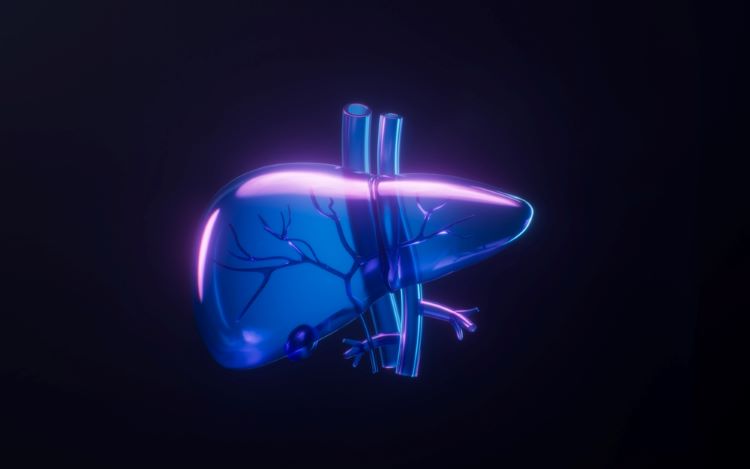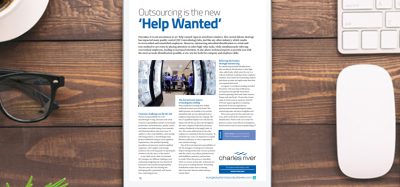FDA approval could shape liver disease treatment landscape
Posted: 15 March 2024 | Catherine Eckford (European Pharmaceutical Review) | No comments yet
A novel liver therapy authorised under US Food and Drug Administration (FDA) Accelerated Approval, is a potential game-changer in the NASH treatment space.


The US Food and Drug Administration (FDA) has approved the first treatment for noncirrhotic non-alcoholic steatohepatitis (NASH), also known as fatty liver disease, in these patients who also have fibrosis.
Rezdiffra (resmetirom) is indicated for adults with moderate to advanced fibrosis), alongside diet and exercise. The treatment is a thyroid hormone receptor (THR)-β agonist. FDA highlighted that it works by helping to reduce fat accumulating in the liver.
“Previously, patients with NASH who also have notable liver fibrosis did not have a medication that could directly address their liver damage,” shared Dr Nikolay Nikolov, Acting Director of the Office of Immunology and Inflammation in the FDA’s Center for Drug Evaluation and Research.
As a “serious and progressive” liver disease, treating NASH with moderate to advanced liver fibrosis is “one of the biggest challenges in drug development”. Therefore, FDA’s approval is “a historic moment for the NASH field,” Bill Sibold, CEO of Madrigal Pharmaceuticals declared.
Clinical efficacy of Rezdiffra (resmetirom)
Madrigal shared that the Accelerated Approval was based on Phase III data demonstrating that Rezdiffra improved liver fibrosis and resolved NASH in patients with noncirrhotic NASH with moderate to advanced liver fibrosis.
At 12 months, liver biopsies showed that a greater proportion of subjects who were treated with Rezdiffra achieved NASH resolution or an improvement in liver fibrosis as compared to placebo treatment, FDA stated.
A total of 26 percent to 27 percent of participants who were given 80mg of Rezdiffra and 24 percent to 36 percent those given 100mg of Rezdiffra experienced NASH resolution and no worsening of liver fibrosis”
A total of 26 percent to 27 percent of participants who were given 80mg of Rezdiffra and 24 percent to 36 percent those given 100mg of Rezdiffra experienced NASH resolution and no worsening of liver fibrosis. This was compared to nine percent to 13 percent patients given placebo and counselling on diet and exercise, FDA shared.
FDA emphasised that these changes in a proportion of patients after just one year of treatment is “notable”. This is because progression of the disease can typically take years or decades to show in most patients.
MAESTRO-NAFLD-1, a separate Phase III trial, evaluated the safety and tolerability of Rezdiffra and contributed to the safety assessment in the FDA’s regulatory decision.
The future of NASH treatments
“I believe Rezdiffra will become the foundational therapy for patients with NASH with moderate to advanced liver fibrosis,” shared Dr Stephen Harrison, Chairman for both Pinnacle Clinical Research and Summit Clinical Research, San Antonio, Texas, Visiting Professor of Hepatology, Oxford University, and lead Principal Investigator of the MAESTRO studies.
Madrigal stated that the MAESTRO-NASH clinical trial is ongoing to produce confirmatory data that, if positive, could support full regulatory approval of Rezdiffra.
Dr Harrison added: “Importantly, we continue to study Rezdiffra to determine if the positive results observed in the MAESTRO studies will lead to reduced risk of progression to cirrhosis, liver failure, need for liver transplant and premature mortality.”
MASH/NASH market predictions
Following FDA’s authorisation, “future therapies will now have to meet or outperform efficacy and safety data generated from resmetirom’s Phase III MAESTRO studies,” Sravani Meka, Senior Pharma Analyst at GlobalData explained.
“According to GlobalData estimates, the NASH/[metabolic dysfunction associated steatohepatitis] (MASH) market is anticipated to reach $25.7 billion in 2032 across the seven major markets (the US, France, Germany, Italy, Spain, the UK, and Japan).
“With competitor assets projected to launch during the forecast period from 2024 to 2032, including but not limited to Novo Nordisk’s semaglutide, [Eli] Lily’s tirzepatide, and Viking’s (THR)-β agonist VK-2809, Rezdiffra’s approval gives Madrigal the opportunity to reap the benefits of the first-to-market therapy for patients with MASH with stages F2 to F3 fibrosis.
“Prior to the approval, a significant point of contention in the industry revolved around the potential requirement for a biopsy, which sparked concerns that the requirement of this procedure could restrict access to Rezdiffra”
“However, it remains to be seen how long Madrigal will be able to hold this lead as we see the entry of the incretin-modulating therapies into MASH during the forecast period. According to Madrigal, FDA has approved the prescription of Rezdiffra without the requirement of a liver biopsy for diagnosis.
“Prior to the approval, a significant point of contention in the industry revolved around the potential requirement for a biopsy, which sparked concerns that the requirement of this procedure could restrict access to Rezdiffra.”
Meka also suggested that an M&A deal in the NASH treatment landscape could be in the pipeline: “As Madrigal continues its journey in commercialising resmetirom, it would not be surprising if the company is also looking to position itself for an acquisition or partnership.”
Related topics
Clinical Development, Clinical Trials, Drug Development, Drug Markets, Drug Safety, Industry Insight, Regulation & Legislation, Research & Development (R&D), Therapeutics
Related organisations
GlobalData Pharma, Madrigal Pharmaceuticals, US Food and Drug Administration (FDA)
Related drugs
Related people
Bill Sibold, Dr Nikolay Nikolov, Dr Stephen Harrison, Sravani Meka
Related diseases & conditions
fibrosis, liver disease, metabolic dysfunction-associated steatohepatitis (MASH), Nonalcoholic steatohepatitis (NASH)









